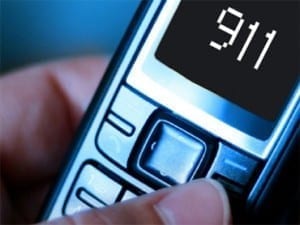911 Operator Must Pay $17.6 Million for Improperly Handling Call
On January 14, 2013, a mother was driving her son to preschool when she inadvertently hit a patch of black ice on the road and lost control of her SUV near the Capitol Hill Boulevard and Pennsylvania Avenue/Rushmore Avenue intersection in Little Rock, Arkansas. Jinglei Yi immediately called 911 for help and was told by the operator responders were on their way. Yet, Metropolitan Emergency Medical Services (MEMS) arrived at the scene only to discover the 911 dispatcher had failed to notify police and fire department water rescue. The mother and her son, Le Yang, were trapped in a pond for 55 minutes after the emergency call was placed. Yi died that morning and Le Yang lived for another two years before passing from drowning-related injuries.
Laura Martin, who directs the city police and fire departments’ communications branch, verified the 911 operator did not enter Yi’s call into a computerized dispatching system as she should have. This system would have automatically alerted police and fire dispatchers. The operator also ended Yi’s call instead of using a transfer option so Yi could remain on the line while the ambulance service was contacted.
“Proper protocol would be…we have a one-button transfer switch where you get (the ambulance) on the line and you remain on the line with them until you’re sure that they have handled the call,” Martin said. Operators must undergo training and a six-month probation period in which they put the skills they learn to use. The operator had just successfully completed her probationary period.

In reviewing the call, Yi clearly describes her location and says there is water in her vehicle. “The water is in my car right now,” she is heard saying on the line. The operator asks Yi for her name and tells her to hang on. “OK, ma’am, we’re going to get some help on the way for you, OK?” she says. “OK. Thank you,” Yi responds just before the call is abruptly ended.
Dayong Yang, Le’s father and the holder of his son’s estate, filed a lawsuit against the operator, Candace Middleton. James Bruce McMath, Charles D. Harrison, and Carter C. Stein with McMath Wood P.A. represented him in court. He initially looked to the city of Little Rock as the primary source of payment, but the judge ruled the city immune from suit. The state, too, was granted immunity. The plaintiff settled previously with MEMS for $25,000 for each death – both mother and son.
The case against Middleton had been set for a bench trial, but she never responded, so the judge had no choice but to rule on a motion for summary judgment. The court then ordered Middleton to pay the estate of Le Yang $17.6 million. The Pulaski County Circuit Court handed down the ruling on October 16th.
The judgment included $4 million for Le’s pain and suffering; $5.031 million for Le’s loss of life; $1.3 million for Le’s medical expenses; $1 million for Le’s scars, disfigurement and other injuries resulting from the accident; and $6.2 million for the mental anguish suffered by Dayong from the death of his son.
Sources:
Damages awarded 4 years after mother, son die in delayed 911 case
Arkansas mom dies after 911 call not entered into system, son in critical condition
Judge sets $17.6 million damages in deaths from botched 911 call


Join the conversation!